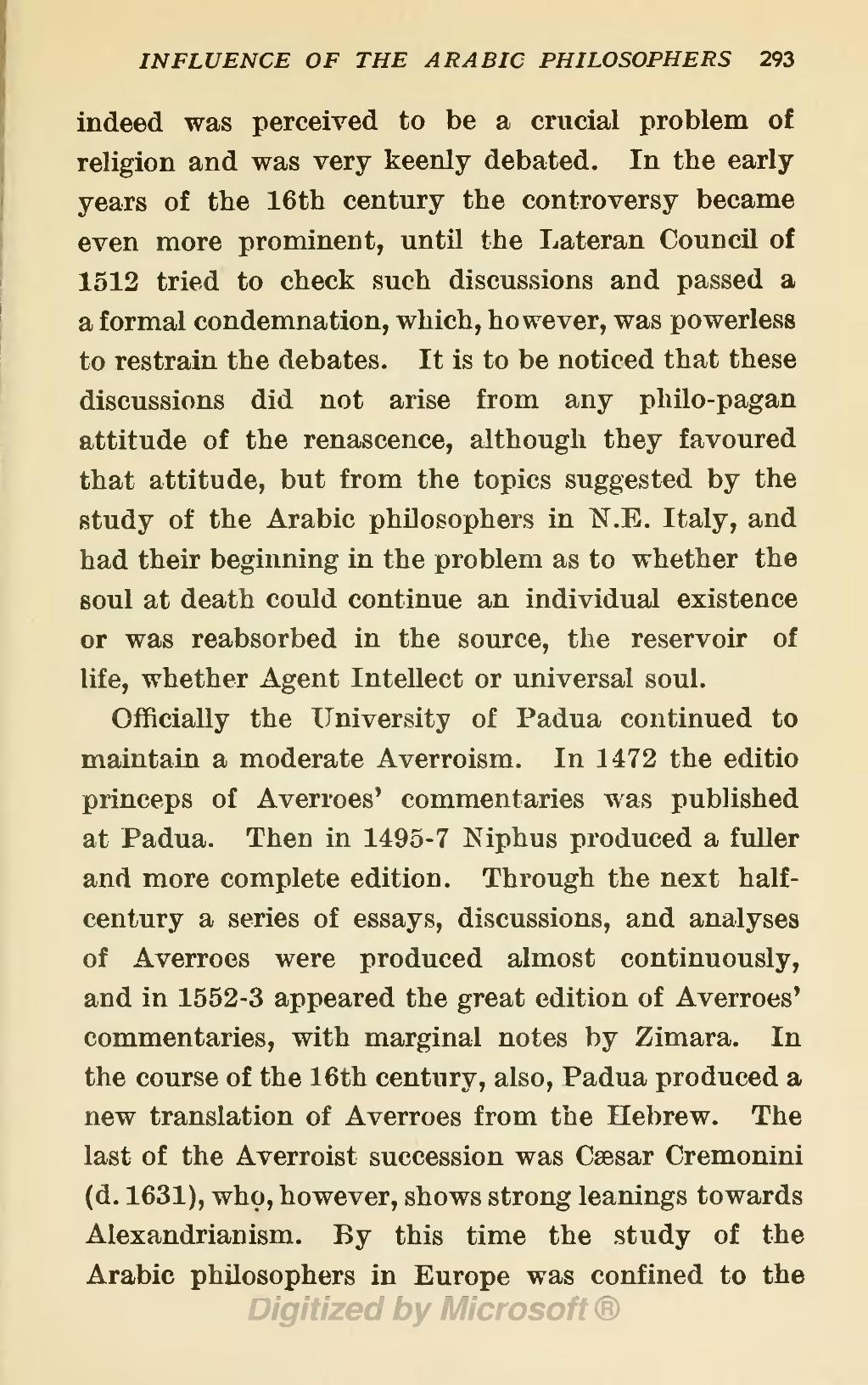indeed was perceived to be a crucial problem of religion and was very keenly debated. In the early years of the 16th century the controversy became even more prominent, until the Lateran Council of 1512 tried to check such discussions and passed a formal condemnation, which, however, was powerless to restrain the debates. It is to be noticed that these discussions did not arise from any philo-pagan attitude of the renascence, although they favoured that attitude, but from the topics suggested by the study of the Arabic philosophers in N.E. Italy, and had their beginning in the problem as to whether the soul at death could continue an individual existence or was reabsorbed in the source, the reservoir of life, whether Agent Intellect or universal soul.
Officially the University of Padua continued to maintain a moderate Averroism. In 1472 the editio princeps of Averroes' commentaries was published at Padua. Then in 1495-7 Niphus produced a fuller and more complete edition. Through the next half-century a series of essays, discussions, and analyses of Averroes were produced almost continuously, and in 1552-3 appeared the great edition of Averroes' commentaries, with marginal notes by Zimara. In the course of the 16th century, also, Padua produced a new translation of Averroes from the Hebrew. The last of the Averroist succession was Cæsar Cremonini (d. 1631), who, however, shows strong leanings towards Alexandrianism. By this time the study of the Arabic philosophers in Europe was confined to the
